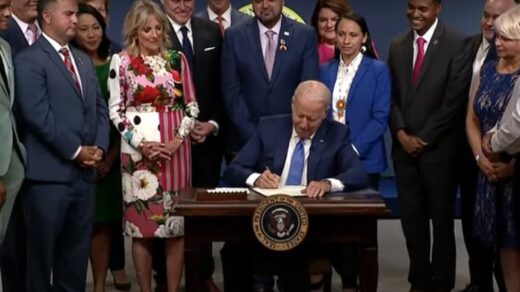Priest loudly backs trans rights after diocese tells LGBT+ people to ‘repent’
Author: Emily Chudy
Transgender people can’t be baptised unless they’ve “repented,” Catholic diocese says (RODNAE Productions/Pexels)
A Catholic diocese in Michigan, United States is facing criticism for telling LGBT+ people they cannot be baptised unless they have “repented”.
Guidance issued by the Diocese of Marquette states that transgender people and people “publicly living in a same-sex sexual relationship” cannot be baptised or confirmed unless they repent.
“A person who is publicly living in a same‐sex sexual relationship… may not be baptised, confirmed, or received into full communion in the Church, unless the person has repented and withdrawn from the relationship,” the document reads.
“Similarly, a person who publicly identifies as a different gender than his or her biological sex or has attempted ‘gender transitioning’ may not be baptised, confirmed, or received into full communion in the Church, unless the person has repented.”
The Diocese had more than 65,000 registered Catholics at its last publicly available count, in 2000.
The guidance, however, does state that LGBT+ people should be treated with “dignity and respect” and that “all unjust discrimination is to be avoided”.
The guidance comes as religious conversion therapy is under the spotlight around the globe, with Canada recently banning the practice.
It is not a sin to be transgender. Transgender people are beloved children of God struggling to understand their identity. They need to be accepted with “respect, compassion and sensitivity.” As Cardinal Gregory told a trans person, “You belong to the heart of this church.”
— James Martin, SJ (@JamesMartinSJ) December 7, 2021
Though the guidance was issued in July, it became widely spread when a New York priest criticised the diocese on Twitter.
“It is not a sin to be transgender,” James Martin, a Jesuit priest and advocate for LGBT+ rights, wrote on Tuesday (7 December).
“Transgender people are beloved children of God struggling to understand their identity. They need to be accepted with ‘respect, compassion and sensitivity’.
“As Cardinal Gregory told a trans person, ‘you belong to the heart of this church’.”
I am a faith leader. I am transgender. When I speak to the ways churches have followed a path into the Blaze of hate and fear, what the Diocese of Marquette has written here is just to put another face on that hate. Thank you James Martin for bringing their hate into the open. https://t.co/btXQY8JGa0
— Vica Steel (@SteelVica) December 8, 2021
A trans woman “on a journey to becoming an out queer pastor” also commented on the guidance, stating that it puts a “another face on hate”.
She said on Twitter: “I am a faith leader. I am transgender. When I speak to the ways churches have followed a path into the blaze of hate and fear, what the Diocese of Marquette has written here is just to put another face on that hate.”
Jennifer Haselberger, a former chancellor for canonical affairs in the Archdiocese of Saint Paul and Minneapolis, told the Washington Post that the diocese’s policy may even go against part of canon law.
The church’s law states that baptism is open to all who haven’t already received it, she said, and a trans person denied baptism could, in theory, appeal to the Vatican. However, it seems unlikely, Haselberger said.

The guidance comes after Pope Francis shut down hope of same-sex marriage in the Catholic Church in September, stating that the church “doesn’t have the power to change sacraments”.
Speaking to reporters after arriving back at the Vatican from Slovakia, the Pope said: “I have spoken clearly about this, no? Marriage is a sacrament. The church doesn’t have the power to change sacraments. It’s as our Lord established.
“Marriage is marriage, but this does not mean condemning [homosexual] people… No, please, these are our brothers and sisters and we need to be close to them, but marriage as a sacrament is clear.”
A spokesman for the Diocese of Marquette told PinkNews: “The Church teaches that persons experiencing feelings of same-sex attraction or gender dysphoria is not sinful, but freely acting upon them is.
“The instruction reads, ‘experiencing feelings and desires that are not in accord with the true meaning and purpose of sexuality is not sinful. To commit a sin, we must know that something is wrong and freely choose to do it.’
“Bishop Doerfler noted that in previous ministry he served as a Courage chaplain. He found working with the Catholic apostolate to persons with same-sex attraction for several years as a priest to be a ‘privilege’ and he remains inspired by the members’ ‘faith and desire to live chastely’.”
Actual Story on Pink News
Author: Emily Chudy




